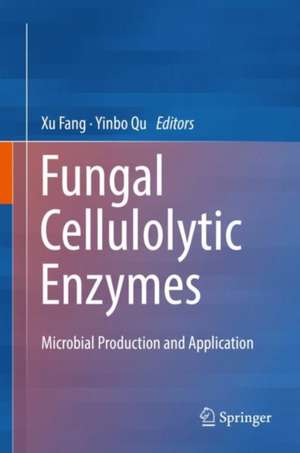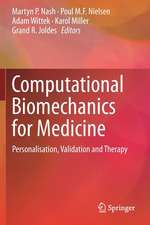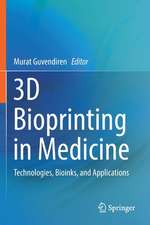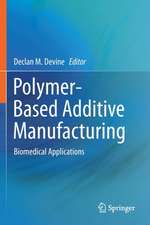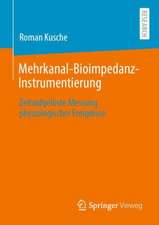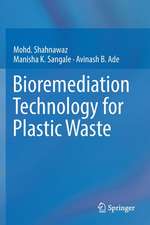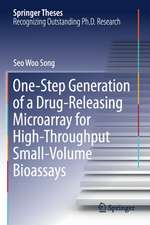Fungal Cellulolytic Enzymes: Microbial Production and Application
Editat de Xu Fang, Yinbo Quen Limba Engleză Hardback – 18 sep 2018
| Toate formatele și edițiile | Preț | Express |
|---|---|---|
| Paperback (1) | 553.29 lei 38-44 zile | |
| Springer Nature Singapore – 30 ian 2019 | 553.29 lei 38-44 zile | |
| Hardback (1) | 647.73 lei 22-36 zile | |
| Springer Nature Singapore – 18 sep 2018 | 647.73 lei 22-36 zile |
Preț: 647.73 lei
Preț vechi: 762.04 lei
-15% Nou
Puncte Express: 972
Preț estimativ în valută:
123.94€ • 129.75$ • 102.55£
123.94€ • 129.75$ • 102.55£
Carte disponibilă
Livrare economică 17-31 martie
Preluare comenzi: 021 569.72.76
Specificații
ISBN-13: 9789811307485
ISBN-10: 9811307482
Pagini: 310
Ilustrații: XIII, 282 p. 41 illus., 22 illus. in color.
Dimensiuni: 155 x 235 mm
Greutate: 0.62 kg
Ediția:1st ed. 2018
Editura: Springer Nature Singapore
Colecția Springer
Locul publicării:Singapore, Singapore
ISBN-10: 9811307482
Pagini: 310
Ilustrații: XIII, 282 p. 41 illus., 22 illus. in color.
Dimensiuni: 155 x 235 mm
Greutate: 0.62 kg
Ediția:1st ed. 2018
Editura: Springer Nature Singapore
Colecția Springer
Locul publicării:Singapore, Singapore
Cuprins
Introduction.- Chapter 1. Pretreatment Process and its Synergistic Effects on Enzymatic Digestion of Lignocellulosic Material (He).- Chapter 2. Genetic Engineering of Fungal Strains for Efficient Production of Cellulosic Enzymes (Zhao).- Chapter 3. Lignocellulase Formation, Regulation and Secretion Mechanisms in Trichoderma reesei (Jiang).- Chapter 4. Development of Highly Efficient, Low‐cost Lignocellulolytic Enzyme Systems in a Penicillium: from Strain Screening to Systems Biology (Qin).- Chapter 5. A Beta‐Glucosidase Hyperproducing Strain‐ Pencillium piceum: Novel Characterization of Lignocellulitic Enzyme Systems and its Application in Biomass Bioconversion (Gao).- Chapter 6. Production of Plant Cell wall‐degrading Enzymes by Neurospora crassa (Chen).- Chapter 7. Strain Improvement for Industrial Production of Lignocellulolytic Enzyme by Talaromyces Cellulolyticus (Fujii).-Chapter 8.Heterologous Expression of Lignocellulolytic Enzymes in Aspergillus niger (Zhang).- Chapter 9. Thermophilic Lignocellulolytic Enzymes: From Discovery to Design (Lu).- Chapter 10. Optimization of Cellulolytic Enzyme System for Lignocellulose Hydrolysis (Zhang).- Chapter 11. Expression of Cellulolytic Enzymes in Yeast (Wang).- Chapter 12. Determination of Cellulase Activities and Model for Lignocellulose Saccharification (Sun).- Chapter 13. Substrate Factors that Influence Cellulases Accessibility and Catalytic Activity During the Enzymatic Hydrolysis of Lignocellulosic Biomass (Hu).- Chapter 14. Rheology Characterization of Lignocellulose Feedstock During High Solids Content Pretreatment and Hydrolysis (Hou).- Chapter 15. Industrial Applications of Cellulases and Hemicellulases (Li).
Notă biografică
Dr. Xu Fang is Professor at Shandong University, Jinan, China.
Dr. Yinbo Qu is Professor at Shandong University, Jinan, China.
Dr. Yinbo Qu is Professor at Shandong University, Jinan, China.
Textul de pe ultima copertă
The book provides an overview of the current knowledge on cellulolytic enzymes and their applications. It summarizes the mechanisms of synthesis and hydrolysis of cellulolytic enzymes, industrial fungal strains, genetic engineering of fungal strains and application of cellulolytic enzymes. This book will be a useful reference for researchers and bioengineering experts engaged in lignocelluloses biodegradation, biomass utilization, enzyme production and fungal molecular biology.
Caracteristici
Overviews the current and updated knowledge of cellulolytic enzymes Summarizes the mechanisms of synthesis and hydrolysis of cellulolytic enzymes Provides applications in cellulolytic enzymes
